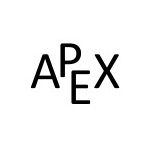1.4.1: Exercises 1.4
( \newcommand{\kernel}{\mathrm{null}\,}\)
Terms and Concepts
Exercise \PageIndex{1}
Do exponent rules apply to root functions? Explain.
- Answer
-
Yes, a root function is just a power function with a fractional exponent.
Exercise \PageIndex{2}
Explain why a negative exponents moves the term to the denominator and gives it a positive exponent.
- Answer
-
A positive exponent means we are multiplying that term repeatedly, a negative exponent means we are dividing by that term repeatedly.
Exercise \PageIndex{3}
Is 3x(2x+3)^{-5/3} in radical or exponential form?
- Answer
-
Exponential form
Exercise \PageIndex{4}
Is \displaystyle \frac{3x}{\sqrt[3]{(2x+3)^5}} in radical or exponential form?
- Answer
-
Radical form
Problems
In exercises \PageIndex{5} - \PageIndex{7}, write the given term without using exponents.
Exercise \PageIndex{5}
\displaystyle (8x_1-5x_2+11)^{-1/3}
- Answer
-
\displaystyle \frac{1}{\sqrt[3]{8x_1-5x_2+11}}
Exercise \PageIndex{6}
\displaystyle (-2x+y)^{-1/5}
- Answer
-
\displaystyle \frac{1}{\sqrt[5]{-2x+y}}
Exercise \PageIndex{7}
\displaystyle (5x-2)^{1/4}
- Answer
-
\displaystyle \sqrt[4]{5x-2}
In exercises \PageIndex{8} - \PageIndex{10}, simplify and write the given term without using radicals.
Exercise \PageIndex{8}
\displaystyle \Bigg( \sqrt{x} + \frac{1}{\sqrt{x}} \Bigg)^2
- Answer
-
\displaystyle x + 2 + \frac{1}{x}
Exercise \PageIndex{9}
\displaystyle (\sqrt{x})^2 + \Bigg(\frac{1}{\sqrt{x}} \Bigg)^2
- Answer
-
\displaystyle x + \frac{1}{x}
Exercise \PageIndex{10}
\displaystyle \Bigg(\sqrt[3]{x} +1 \Bigg)^3
- Answer
-
\displaystyle x + 3x^{2/3} + 3x^{1/3} + 1
In exercises \PageIndex{11} - \PageIndex{17}, simplify the given term and write your answer without negative exponents.
Exercise \PageIndex{11}
\displaystyle \Bigg( \frac{-5x^{-1/4}y^3}{x^{1/4}y^{1/2}}\Bigg)^2
- Answer
-
\displaystyle \frac{25y^5}{x}, y \neq 0
Exercise \PageIndex{12}
\displaystyle \Bigg( \frac{-2x^{2/3}y^2}{x^{-2}y^{1/2}}\Bigg)^6
- Answer
-
\displaystyle 64x^{16}y^9; x,y \neq 0
Exercise \PageIndex{13}
\displaystyle \Bigg( \frac{-3s^{2/3}t^2}{4s^3t^{5/3}}\Bigg)^3
- Answer
-
\displaystyle \frac{-27t}{64s^7}, t\neq 0
Exercise \PageIndex{14}
\displaystyle -3(x^2+4x+4)^{-4}(2x+4)
- Answer
-
\displaystyle \frac{-6}{(x+2)^7}
Exercise \PageIndex{15}
\displaystyle \frac{1}{3}(x^4)^{-2/3}(4x^3)
- Answer
-
\displaystyle \frac{4x^{1/3}}{3}
Exercise \PageIndex{16}
\displaystyle \frac{(e^{x+3})^2}{e^{-x}}
- Answer
-
\displaystyle e^{3x+6}
Exercise \PageIndex{17}
\displaystyle \frac{e^{x^2-1}}{e^{x+1}}
- Answer
-
\displaystyle e^{x^2-x-2}
In exercises \PageIndex{18} - \PageIndex{20}, simplify and write the given term in exponential form.
Exercise \PageIndex{18}
\displaystyle \frac{4x-1}{\sqrt[3]{(3x+2)^2}}
- Answer
-
\displaystyle (4x-1)(3x+2)^{-2/3}
Exercise \PageIndex{19}
\displaystyle \sqrt[3]{\Bigg(\frac{e^{4\theta-6}y^2}{e^{\theta}y^{-4}}\Bigg)}
- Answer
-
\displaystyle e^{\theta-2}y^2, y \neq 0
Exercise \PageIndex{20}
\displaystyle \sqrt[4]{\Bigg(\frac{x^2y^5}{y^{-3}}\Bigg)^2}
- Answer
-
\displaystyle xy^4, y\neq 0


